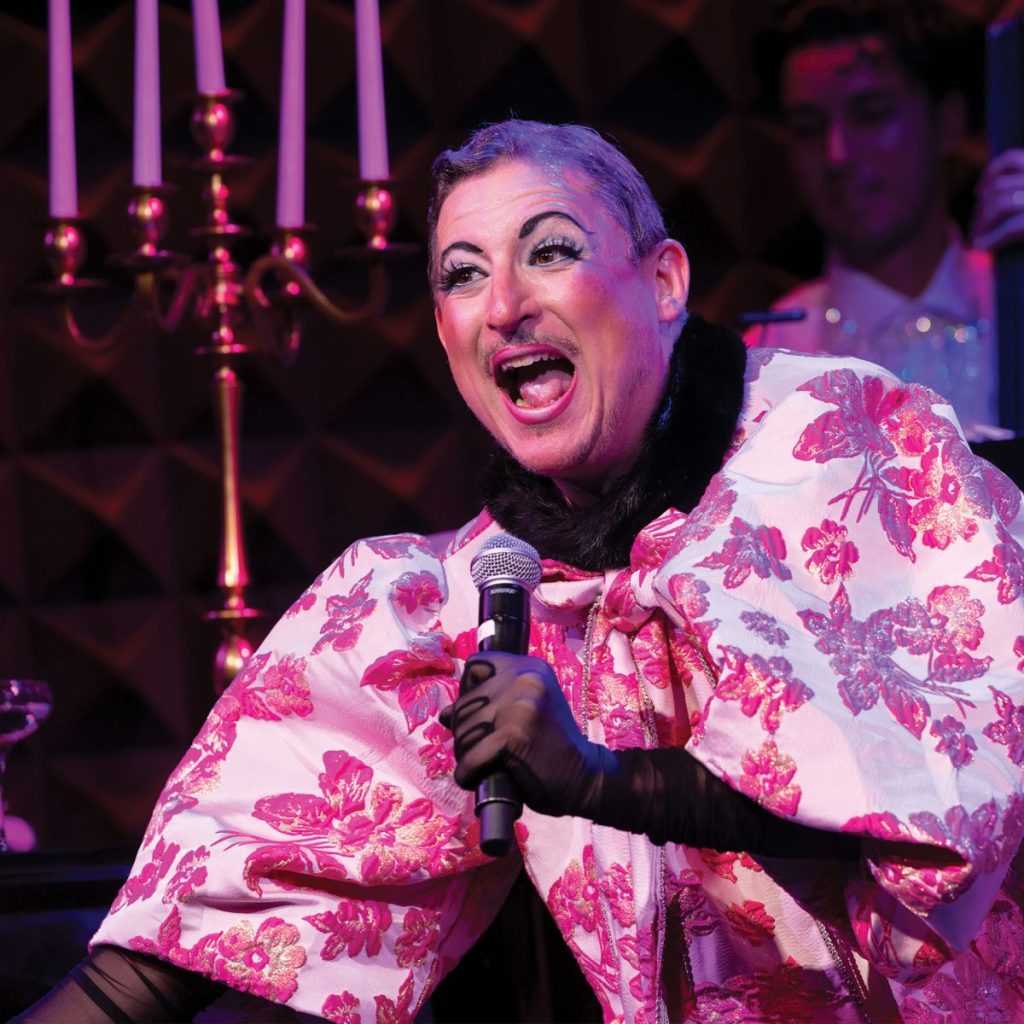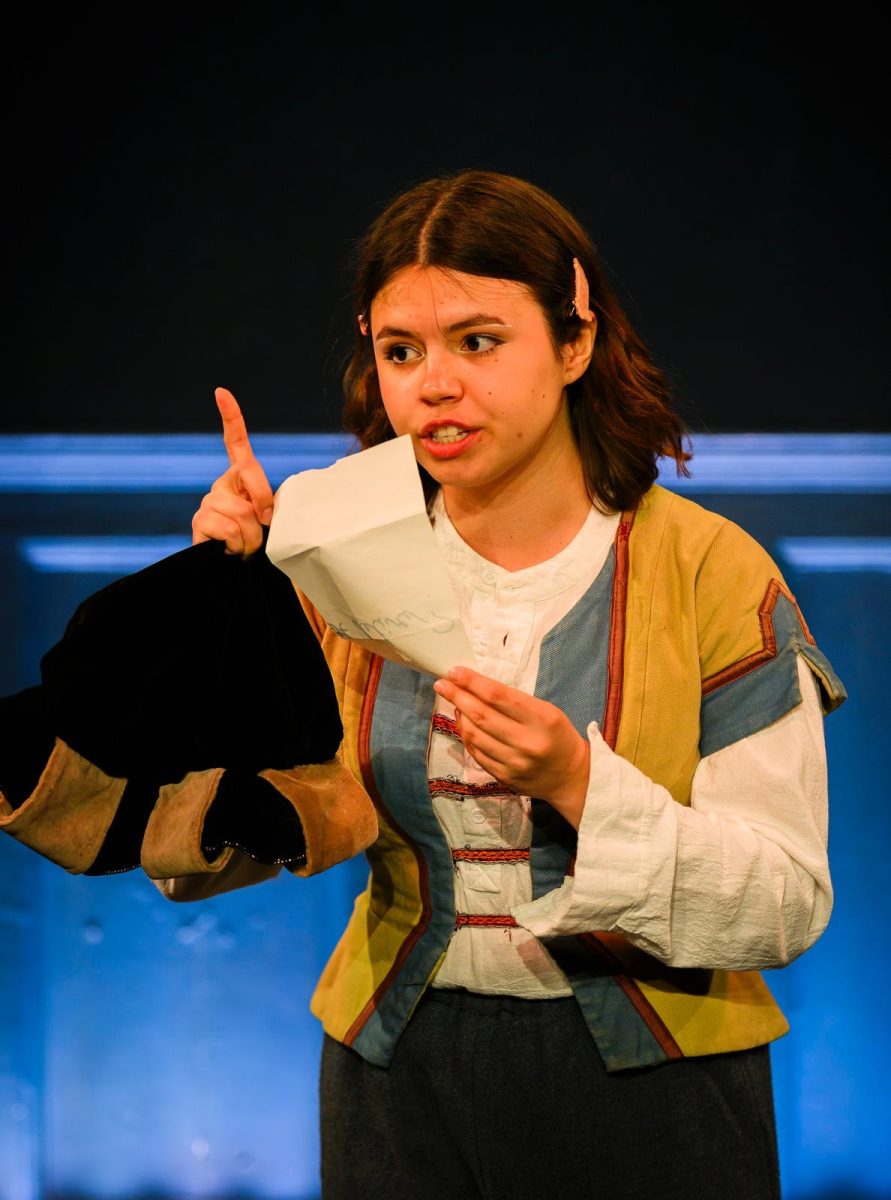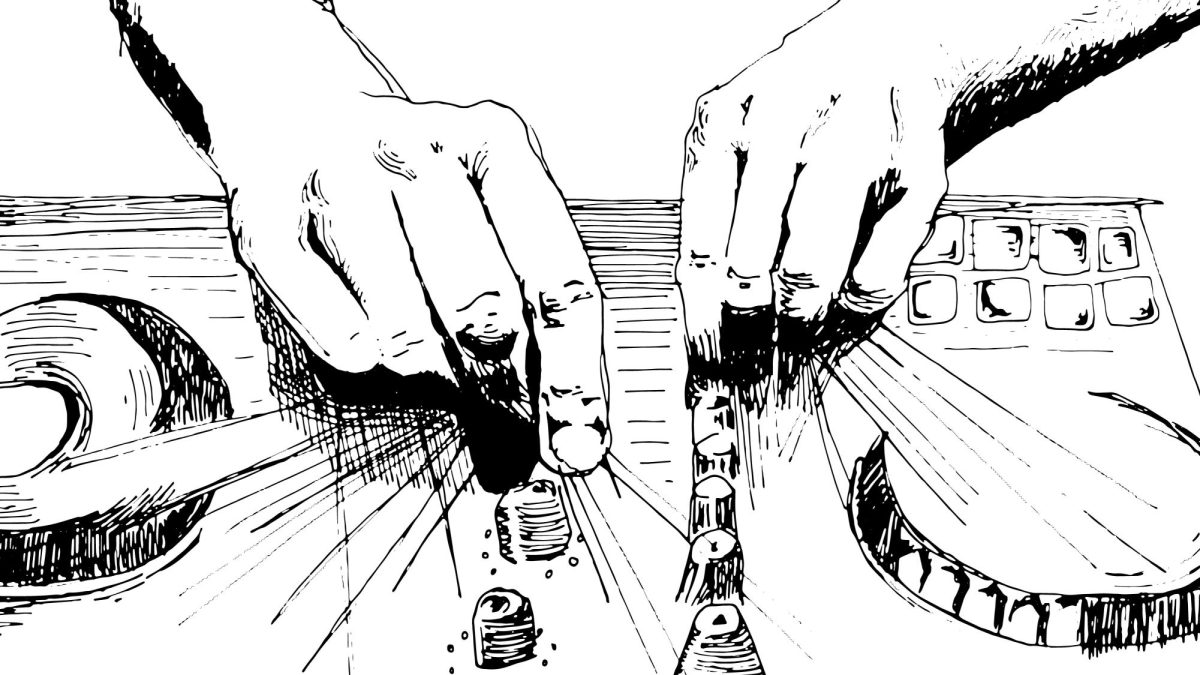
Last weekend, the Queering Perspectives Festival had its second and final weekend at the ’62 Center for Theatre and Dance with Your Sexts Are Shit: Older Better Letters by Rachel Mars and Bigmouth Strikes Again (The Smiths Show) by Salty Brine. The festival showcased queer artists and performers in a variety of subversive and experimental theatrical works. The festival had its first weekend on Feb. 9 and 10, with performances by Alex Davis, Jay Carlon, and Micaela Tobin.
The festival scheduled two shows in the same weekend to put them in conversation with each other, according to Randy Fippinger, visiting artist producer and outreach manager at the ’62 Center. At the same time, it acted as a response to the increase in anti-LGBTQ+ legislation at the time, he told the Record. “We [at the ’62 Center] wanted to focus on artists in a more intense way, spending more time and creating deeper connections with the artists,” he said.
According to Fippinger, Nathaniel Wiessner, operations manager at the ’62 Center, selected last weekend’s two shows after seeing them at the Under The Radar festival in New York. “[We] saw these shows and they really spoke to us,” Fippinger said. “They said something while also being fun and lively,” Wiessner added.
Mars’ Your Sexts Are Shit: Older Better Letters, which was performed on Feb. 22 and 23, explores questions of desire through “love letters of long-dead poets, modern sexts, and a meditation on the construction of the queer female body,” as stated in an advertisement by the ’62 Center.
Mars, an artist based in London, said she was inspired in a moment of sadness after the United Kingdom’s withdrawal from the European Union in 2020. “Another artist read me a [James Joyce] letter and I was just transported — so much joy, so filthy, so beautifully written,” she wrote in an email to the Record.
“This show was a way to carve out a public space, to create another kind of intimate audience for questions of desire, self-creation through writing and the exchange of language,” Mars continued.
Mars said that she hopes audiences take the show’s message and apply it to their own lives. “Write letters! Write terrible sexts! Be in communication with each other about desire and pleasure,” Mars wrote. “It is a powerful and increasingly radical act to insist on the capacity for our bodies for enjoyment alone.”
Brine’s Bigmouth Strikes Again (The Smiths Show), performed on Feb. 23 and 24, pairs Mary Shelley’s Frankenstein with The Smiths’ 1986 rock album The Queen is Dead. “I felt the Gothic world of the novel with its ‘dark and stormy night’ atmosphere had a lot of potential for camp cabaret storytelling,” Brine, a Brooklyn-based cabaret artist and performer, wrote in an email to the Record. “It’s a story about a monster who is deeply and surprisingly human. He is a metaphor for longing which I think is one of those big human emotions that touches us all — that we all connect with.”
“Whatever happens to you when you take in a piece of art is your own and completely valid,” he said. “I guess, I hope they feel something, anything. That would be a win in my book.”
To learn about audience response to the shows, staff at the ’62 Center asked attendees to attach sticky notes to festival posters after each performance. “Loved the content, loved the humor and artistry — theirs and yours. Great show!” read a sticky note about Mars’ show. Similar positivity adorned Brine’s poster which included “unbelievable,” and “BRILLIANT.”
Mars stressed the importance of queer representation in performance art. “Representation is always going to matter,” she wrote. “It’s important to see people who share similarities with you as an audience member on stage, to know you can be something that is a minority identity that often gets erased (either deliberately or just out of habituation) from mainstream cultures.”
Brine expressed a similar sentiment, describing how his perspective as a queer artist allows him to speak to different kinds of people. “What I find is that most everyone, no matter their gender or their sexuality, has [had] some experience feeling [like] an outsider — feeling different or questioning their identity in some way — and that is one of the great gifts queer people can give to the whole world,” he wrote.
“I also think queer art as a form opens up alternatives of being, thinking, imagining that say ‘It doesn’t have to be this way,” Mars added. “At times of societal and political conservatism, that kind of horizon thinking is vital for health — for the personal health of individuals but also for the wider health of society.”
Fippinger said that the committee is already in the process of planning a similar festival for next year. “Next year, instead of having a very bespoke festival, the committee is thinking about more development, working with artists,” he said.







